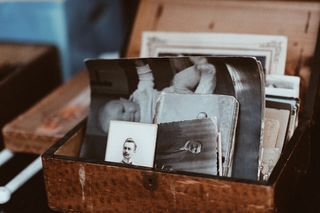Genetics
The One Question You Must Ask Before Doing DNA Testing
Knowing your reason for DNA testing helps determine which test to use.
Posted February 24, 2019

Millions of people have taken DNA tests. Amazon reported that the AncestryDNA test was one of its five most popular products on Black Friday the past two years. The prices of these tests continue to drop, making it even easier to spit into a tube and wait for results.
But, before you test, you need to ask yourself one question--what are you hoping to learn?
Here are some of the most common answers to this question:
I’d like to learn about my ethnic heritage
This may be the most common reason that people test. Keep in mind that estimates of your ethnic heritage are just that—estimates. Don’t take these results as being 100% accurate. The science of this is constantly evolving. Also, keep in mind that ethnicity is not the same as nationality. Our ancestors moved around a great deal, from country to country, and from region to region.
I’d like to find family
You may have been adopted, or have other reasons for wanting to track down your biological family. DNA testing may enable you to find one or both birthparents, or other family members. You may envision emotional reunions with the people you are searching for. Keep in mind, you may track down people who prefer to remain hidden, or you may uncover sad or even traumatic stories. On the positive side, you may find closure in learning your true origins, and positive reunions do happen—just know that you can’t control the story.
I want to know more about my genetics for medical reasons
When you go to see a new doctor, they always have you fill out a form listing your family’s medical history. Why? Because many illnesses have a genetic component, and your family’s medical history may give the doctor clues of things to look for. But, what if for some reason you don’t know much about your family’s history? What if you weren’t raised by your biological parents, or what if the information you need is from two or three generations ago?
DNA testing may give you some of the information that you need, and for a relatively small price. However, the amount of information will be limited, and may or may not be relevant to your particular need.
So, why do you need to know what you are looking for?
Your answer to this question helps determine what options you have.
If you are looking for your ethnic heritage, you can choose from any of the most popular tests. Users (and experts) debate which test is most accurate in determining your heritage. The top-selling tests are AncestryDNA and 23andMe (in North America), and MyHeritage is very popular in Europe. Other popular brands include Family Tree DNA (FTDNA) and Living DNA.
If you are looking for biological family, the two most popular tests are AncestryDNA (which has the largest database of other testers) and 23andMe. If you purchase a membership with Ancestry, you can see family trees (if they’ve been posted) of your biological relatives, and this may help you figure out what your own biological family tree could be. 23andMe does not have family trees (at the time this is being written), but it is possible that the relative you are looking for tested to learn more about their medical genetics—so there is a chance you would find them by testing with 23andMe.
23andMe made its name by offering genetic testing that could provide health information, and many people have found this information helpful. As a word of caution, though, the testing is limited. For example, don’t assume that this test will provide you all you need to know about your risk of breast cancer or other diseases.
If you are seeking medical information, 23andMe is not your only option. If you test with one of the other companies, you can download your genetic information and then upload that file to other websites that provide detailed medical information for free or for a low fee.
Conclusion
All of this can be overwhelming when you are first considering DNA testing. Fortunately, there are a number of Facebook groups and other websites available to help. Two very helpful Facebook groups are DNA Detectives (where other members help you learn what your DNA results mean) and DD Social (which focuses less on the DNA testing). These two Facebook groups are also great places to learn about other internet sites that may be helpful in your DNA journey.
This post was written by my husband, Greg Markway, Ph.D., a St. Louis based psychologist and avid genealogy buff. You can follow him on Twitter and read about his search for his great grandfather on his personal blog.




